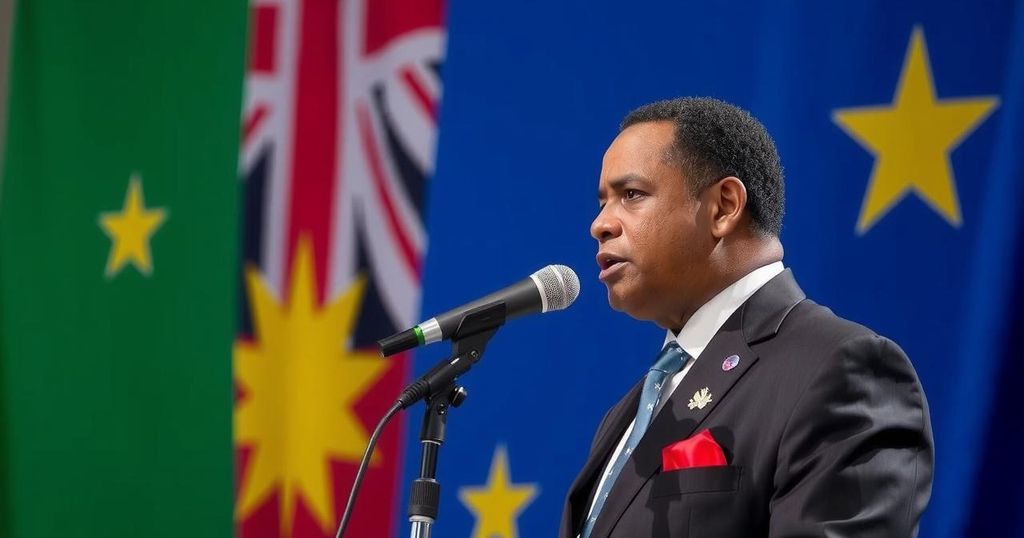Mauritius Prime Minister Acknowledges Election Defeat, Opposition Poised to Lead
Mauritius Prime Minister Pravind Jugnauth conceded defeat in the legislative elections, signaling a potential return to power for opposition leader Navin Ramgoolam. The election was overshadowed by a wire-tapping scandal, impacting voter sentiment and raising concerns over governance. The changing political landscape reflects the enduring rivalry between two major dynasties in Mauritian politics, with both parties advocating for solutions to socio-economic challenges facing the nation.
In a pivotal moment for Mauritian politics, Prime Minister Pravind Jugnauth has acknowledged that his coalition is likely facing a substantial defeat in the recent legislative elections. Although final results from this closely contested vote have yet to be announced, opposition leader Navin Ramgoolam appears poised to reclaim the premiership at the helm of his Alliance of Change coalition. Jugnauth, who has led since 2017, stated that “the people have chosen another team to lead the country” and emphasized the importance of respecting their decision.
The anticipated results are expected later on Monday after delays in counting were attributed to incidents on election day. The elections utilized a winner-takes-all model with 62 out of a total of 70 seats up for election. Jugnauth’s acknowledgement of defeat comes on the heels of a scandal involving wire-tapping allegations against political figures, which marred the election campaign and sparked socio-political concerns regarding Mauritius’ democratic integrity.
Despite this, both major parties pledged to address pressing socio-economic issues, including escalating living costs and corruption. Ramgoolam’s manifesto outlines measures to assist struggling families, including establishing a fund to alleviate financial strain and implementing constitutional reforms. Both Jugnauth and Ramgoolam belong to political dynasties that have dominated Mauritius since independence in 1968, with Ramgoolam previously serving as prime minister multiple times.
Mauritius, often hailed as one of Africa’s most stable democracies, has a political history characterized by shifting power dynamics primarily between two major parties. The ongoing political rivalry between Pravind Jugnauth’s Militant Socialist Movement (MSM) and Navin Ramgoolam’s Alliance of Change coalition reveals deep-seated electoral strategies and familial legacies that date back to pre-independence. The recent election was notably influenced by a wire-tapping scandal that raised questions about governance and integrity in Mauritius, leading to concerns about declining civil liberties and democratic erosion. Economically, the island nation has achieved considerable development with a thriving tourism sector, yet faces challenges related to governance and corruption that have been highlighted by analysts.
The recent legislative elections in Mauritius have brought significant political change as Prime Minister Pravind Jugnauth conceded defeat, opening the door for Navin Ramgoolam to potentially assume leadership once again. This electoral outcome, set against a backdrop of political scandals and socio-economic challenges, underscores the evolving landscape of Mauritian politics and highlights the ongoing struggle between governance issues and the citizenry’s aspirations for better living conditions. As results are finalized, the implications for Mauritius’s democracy and future governance are being keenly assessed.
Original Source: www.bellevueheraldleader.com




Post Comment